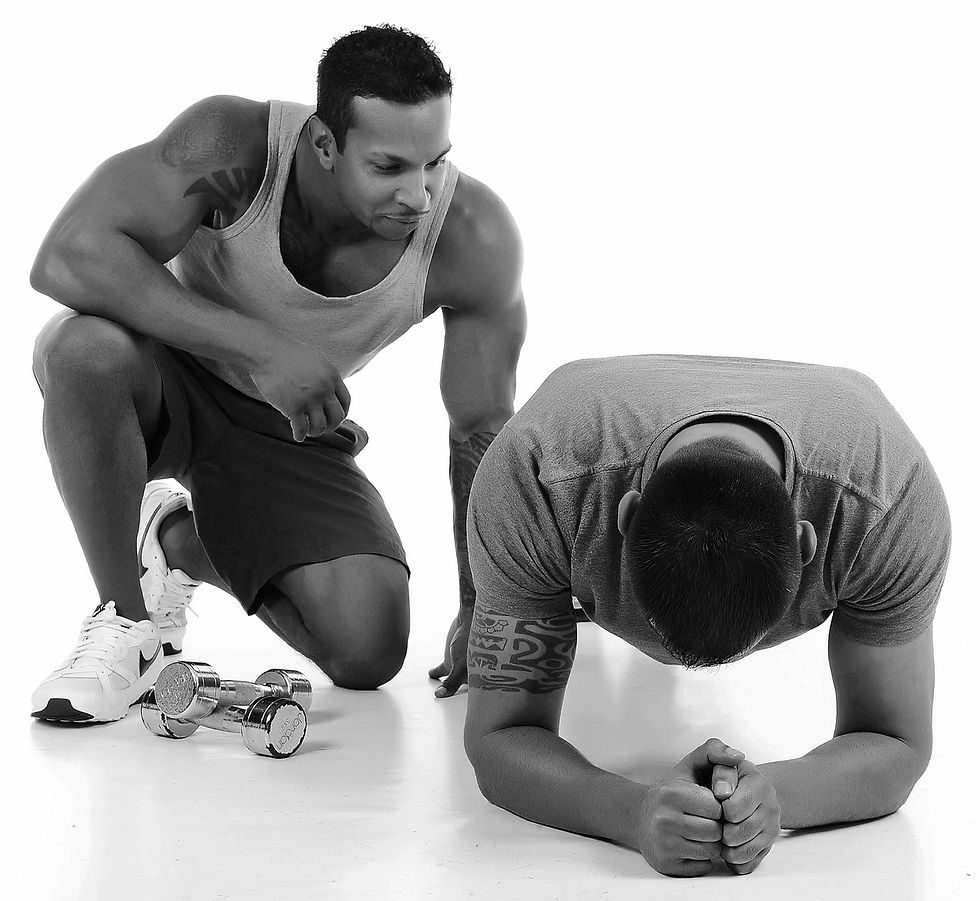How Does Posture Affect Your Emotional Well-Being? Exploring the Link and Training Techniques
- Mehdi Bensaid
- Apr 18, 2025
- 3 min read
Updated: Apr 23, 2025
In our fast-paced world, the way we carry ourselves can deeply affect both our physical health and emotional well-being. This connection between posture and emotions is particularly relevant for those who spend long hours in front of screens. By understanding this link and adopting simple training techniques, we can boost not just our posture but also our overall emotional state.
The Connection Between Posture and Emotion
Posture does more than just support our bodies; it plays a crucial role in shaping our emotions. For instance, research shows that body language impacts our feelings. An upright posture often correlates with confidence and happiness, while slumped positions are associated with sadness.
A study by social psychologist Amy Cuddy found that individuals who adopted “power poses” experienced a 20% increase in testosterone levels and a 25% decrease in cortisol, leading to a more positive emotional state. This evidence suggests that our body positions can create a feedback loop that influences our mental health. When we maintain open and upright postures, we project confidence, which can enhance our mood and emotional well-being.
Understanding the Science Behind Posture
The interplay between posture and emotional health can be explained through psychological and physiological theories. For example, a tense or closed posture—think crossed arms or a bowed head—can lead to feelings of anxiety. A 2018 study found that individuals with poor posture reported 33% higher levels of anxiety than those who maintained good posture.
On the other hand, adopting an open and relaxed posture—shoulders back, chest open—promotes better breathing and increases energy levels. This posture signals to the brain that one is safe and in control, which can lead to improved mental states. Our physiology and psychology are closely connected, so adjusting our posture can shift our mood and outlook.

The Mental Load of Poor Posture
For many who work desk jobs, poor posture becomes the default. Slouching or leaning forward can result in back pain and increase feelings of fatigue and emotional distress. According to a survey, 68% of desk workers report chronic pain that, in turn, contributes to mental health challenges.
This cycle continues: physical discomfort leads to heightened stress, which may worsen feelings of anxiety or depression. Thus, improving our posture not only alleviates physical concerns but also significantly benefits our mental health. When we feel good in our bodies, maintaining a positive mindset becomes easier.
Training Techniques to Improve Posture
Incorporating simple techniques into your daily routine can dramatically enhance your posture and emotional well-being. Here are some effective strategies:
Ergonomic Adjustments
Adjust your workspace to support good posture. Use chairs with lumbar support and position your screen at eye level to prevent hunching.
Stretching and Strengthening Exercises
Include brief stretching sessions throughout the day to ease tension in the back and neck. Strength training for core muscles can also significantly enhance your posture and prevent discomfort.
Mindfulness Practices
Engage in mindfulness activities like yoga or tai chi, which promote body awareness. These practices help maintain a strong and open posture while nurturing a calm mind.
Regular Breaks
Set a timer to remind you to take breaks. Stand up, stretch, and walk around every hour. This practice refreshes the mind and helps maintain good posture.
Visualisation Techniques
Picture yourself standing tall and confident. This mental imagery can be a powerful tool to reinforce good posture habits.

The Role of Community and Environment
Surrounding ourselves with positive influences can enhance the uplifting effects of good posture on emotional well-being. Group activities, like yoga classes or fitness groups, provide social interaction that is crucial for mental health.
Moreover, our environment plays a key role in how we feel. Research shows that green spaces can lower cortisol levels by about 15%, making nature a valuable ally for both posture and emotional health. Incorporating time outdoors or in calming surroundings can improve both your posture and mood.
Embrace Positive Posture for Emotional Resilience
Recognising that our posture reflects our emotional state is essential. Improving posture not only alleviates physical discomfort but also serves as a powerful tool for enhancing emotional well-being.
By integrating posture training techniques into daily life, individuals can experience boosted mood, increased confidence, and reduced stress levels. As we continue to explore the relationship between our bodies and minds, investing in better posture may just pave the way for a brighter, more emotionally fulfilling life.
Taking the first step towards better posture is more than just a physical change; it’s a commitment to emotional strength and resilience. Start today on your journey to a more upright and confident self!




Comments